Understanding Japan One Word at a Time
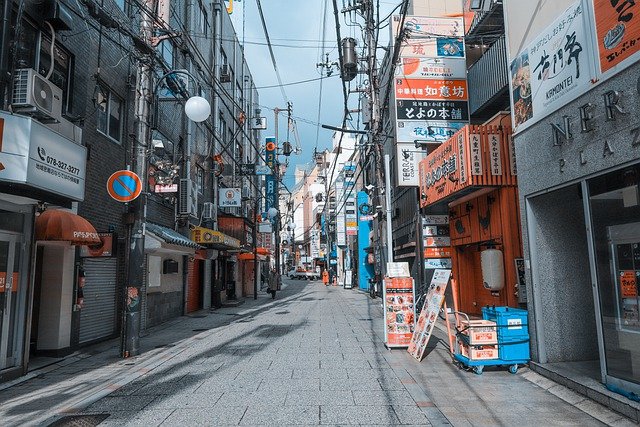
When I landed in Japan, the contents of my backpack were an assortment of summer clothes, bug spray, and no useful knowledge of any Japanese. This had to change–quickly!
Understanding Japan One Word at a Time
Irasshaimasse ~ Welcome!
I worked on an organic farm in the rural mountainside town of Yuki, outside Hiroshima, through WWOOF Japan. The farm was a collection of rice paddies surrounding a vegetarian café. My first day on the job included our host giving a crash course in Japanese so I could serve customers and interact with the head (and only) chef. My duties were mostly in the kitchen, but I would also serve food to customers.
Because of the secluded location, only a few customers would arrive each day, but when they did, the entire kitchen would erupt in weird glee. The chef would bellow “Irasshaimasse!” from the kitchen. The WWOOFers joined in, in our various accents. The louder the greeting, the better and more welcoming. My pronunciation was completely off and was more a mix of various throat sounds.
Everyone saw right through my “Irasshaimasse.” I realized they didn’t care what I was saying, just that I was trying, which was enough.
Saru ~ Monkey
Settling into a routine was easy: on the first night in my hosts’ home I was given a thin mattress to lay over the tatami-matted floors. There were four WWOOFers at the home and we became close quickly. We’d pair off to do tasks and switch between the café and weeding the paddies. Each morning, we would help our host with his many side jobs. He was Yuki’s sole paperboy. Luckily the town consisted of less than 100 inhabitants (and the 130 lifelike scarecrows scattered through the fields didn’t read the paper).
One morning, like every other morning, my friend and I went out to deliver papers. On our route, we saw a Japanese macaque climbing down a telephone pole. Monkeys skittered through the streets during the day, but weren’t really a visible part of town life. We stood in awe of its cherry-red face gawking at ours. It was a bit weird that the monkey started climbing down the pole, but we thought nothing of it as we fumbled for our phones, balancing papers in the other hand.
When the monkey had reached the ground, I knew something was off. A shrill scream pierced the air and I saw the macaque hurtling toward us, full speed, fangs bared. We cut down a driveway through a garden and, just like in horror movies, were directly at a cliff edge with the monkey just seconds behind us. We darted through a rice paddy and successfully made it through the farm to the other side of the road. The monkey had stopped chasing us and was perched atop an abandoned house, making sure we didn’t come back.
Our host’s first reaction when we told him what had happened was to laugh. A saru chasing someone? Unheard of.
Traveling has had the power to make me feel invincible, but I was snapped back to reality in that moment. I felt incredibly lucky nothing had happened to us. The growing internal frustrations I felt about the routine work vanished and I went to work that day with fresh eyes and a deep-seated fear of monkeys.
Yashinomi ~ Coconut
After getting bored of taking pictures with Yuki’s numerous scarecrows by day three in the town, whenever we had free time us WWOOFers went on long walks down the main road. One day we walked past the café chef’s apartment and found her landlady out front. She beckoned all of us in and, assuming she would bring the chef out, we waited in the front room.
The room was filled from floor to ceiling with old decorative masks. The landlady emerged holding a tray of snacks and Fanta. We ate curiously and watched her point to different masks and tell us the stories behind them. She finished her story, of which I didn’t catch much, and looked expectantly at me. Not knowing what to do, I just pointed to a different mask.
“Yashinomi,” she said, smiling. I just smiled back.
“YA-SHI-no-MI,” she tried again. My smile froze.
She pointed again to the mask, picking up a delicate fiber, and whispered, “Yashinomi.”
“Oh! Coconut!” Yes, I finally understood! The mask was made of a coconut. She saw that I got it, gave me a secret smile, and proceeded to tell us more stories.
In Japan, especially in Yuki, homogeneity is the norm. As a tall Indian girl, I stuck out and was extremely self-conscious. Interacting with the landlady brought that fear to the forefront: I couldn’t speak the language, I didn’t look like the people, and I was unfamiliar with the customs. Beginning with this woman, everyone I met was extremely kind and went out of their way to help me, reminding me that I fit in anyway.
Mata Ne ~ See you
The time on the farm went by quickly and it was difficult to say goodbye. I was in love with Yuki village by the time I left, and the people who had shared this unique experience with me. In the future, I would love to be a part of a WWOOF farm again, to slow down the pace and enjoy the details of travel.
Photo for Understanding Japan One Word at a Time by Pixabay.

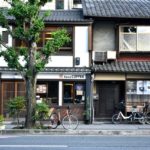


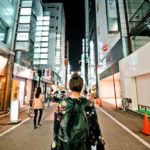
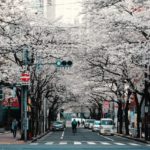


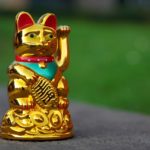
Hi there 🙂
I’m the creator of Hippohelp.com, it’s a similar platform as WWOOF, but differs in that it’s completely free to use for all members, and the map-based interface makes it really easy to find hosts and travellers.
Please consider adding the site to your post, I’m sure it would be of great value to your readers 🙂
Thanks,
Leopold Huber
Hippohelp.com